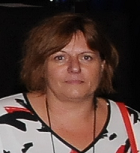UAHCI 2019, an affiliated conference of the HCI International Conference, at its 13th edition, provides an established international forum for the exchange and dissemination of scientific information on theoretical, methodological and empirical research that addresses all issues related to the attainment of universal access in the development of interactive software. It comprehensively addresses accessibility and high quality of interaction in the user interface development life-cycle in a multidisciplinary perspective.
The 13th International conference on Universal Access in Human-Computer Interaction (UAHCI) intends to help, promote and encourage research in this field by providing a forum for interaction and exchanges among researchers, academics, and practitioners in the field.
The conference solicits papers on the design, development, evaluation, use, and impact of user interfaces, as well as standardization, policy and other non-technological issues that facilitate and promote universal access.

MARGHERITA ANTONA
Foundation for Research & Technology - Hellas (FORTH), Greece

CONSTANTINE STEPHANIDIS
University of Crete /
Foundation for Research & Technology - Hellas (FORTH), Greece